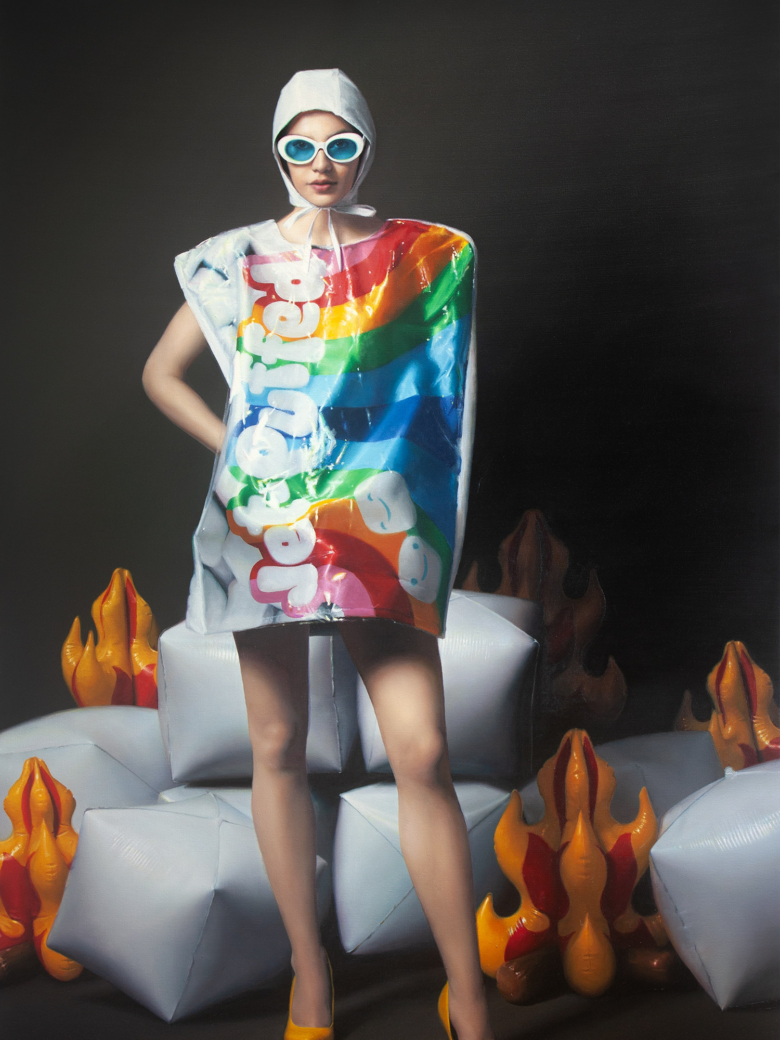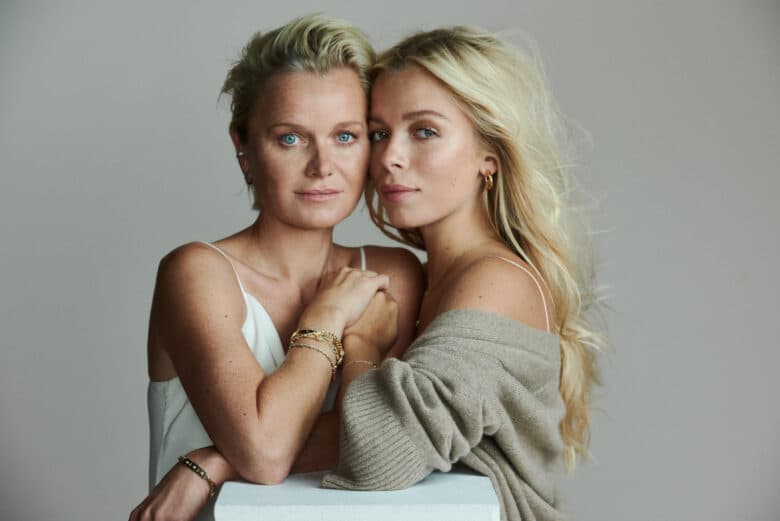Ren Hang’s countercultural appeal
Ren Hang’s aesthetic is both instantly recognisable and ceaselessly imitated. A stark analogue flash captures bodies, frequently nude, in contorted poses and often engaged in a careful symbiosis with nature. Stripped of its sexual potency, the bare body becomes an abstract shape within each image’s composition. With a subversive, almost Surrealist, sense of abandon, the artist’s images of youth, flesh and bodily fluids are infused with a living vibrancy.
Despite widespread acclaim, his striking imagery attracted negative attention from Chinese authorities for violating censorship laws prohibiting nudity. This would lead to his exhibitions being cancelled in his native China, as well as arrest on multiple occasions. However, whilst he received backing from hyper-political artist Ai Weiwei, Hang denied that his work was making any kind of statement against the Chinese state. In conversation with Vice in 2013 he clarified his views, saying: “I love China and I like shooting Chinese people. I was born here and I feel a big connection with my hometown. True, I’m restricted here, but the more I’m limited by my country, the more I want my country to take me in and accept me for who I am and what I do.”
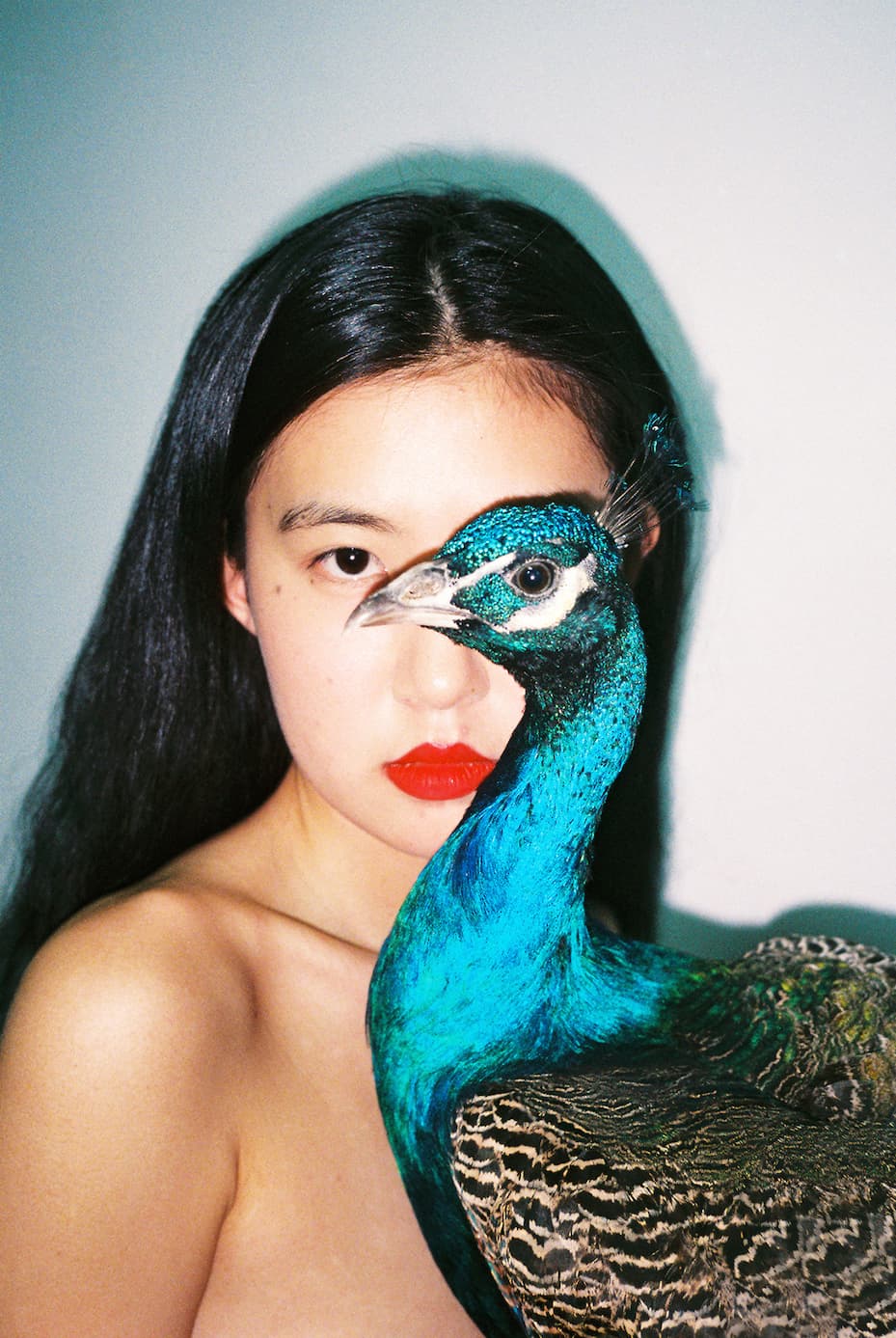
Regardless of where he placed himself politically, the controversy surrounding his images – as well as their ability to reconcile the gorgeous and the grotesque – has made him into a subcultural icon in the West. His devotion to his craft and refusal to accommodate the social mores of the day makes him the poster-child for any wide-eyed idealist longing to pursue “art for art’s sake”. Moreover, self-taught and gaining his following by posting images online to Flickr and Facebook, he captures the DIY ethos of a generation of very online artists looking to subvert the entrenched hierarchies of the art world.
We can only hope that Hang’s talent lives on through the budding artists who are touched and inspired to create after seeing his work. Though he was personally open about his mental health struggles, the sense of play and joy within his photography masked a melancholy that plagued him throughout his life. In 2017, he took his own life at age 29 after a lengthy battle with depression.
Looking back at the 2010s, few artists full capture the spirit of the decade as well as Hang, whose taboo-breaking work, DIY success and political struggles embody these years of innovation, resistance and exploration. Moving into the 2020s, C/O Berlin will pay homage to the artist with a large-scale retrospective of his photography, running until February 2020.
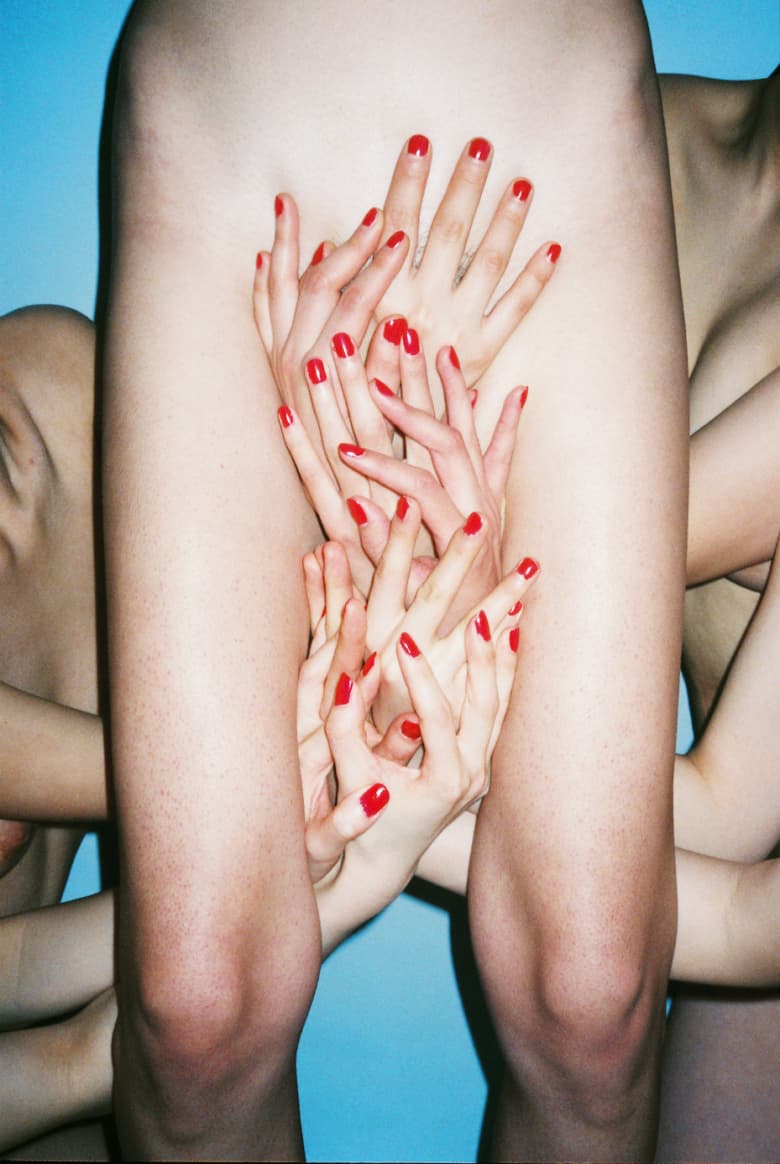
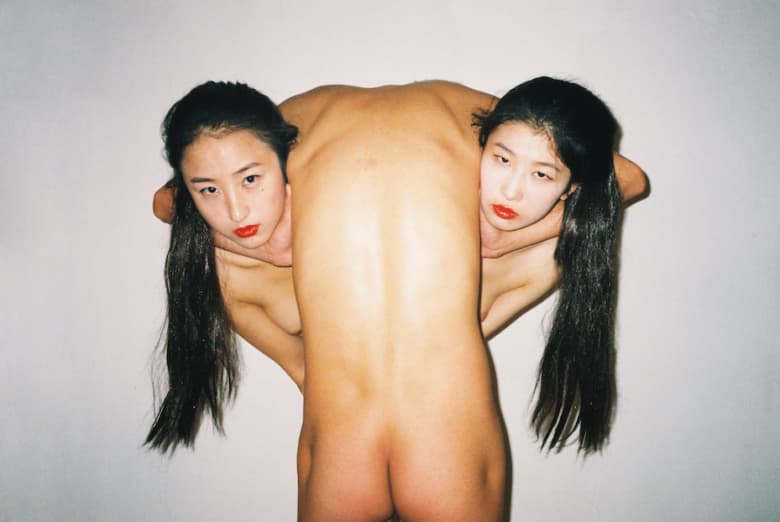
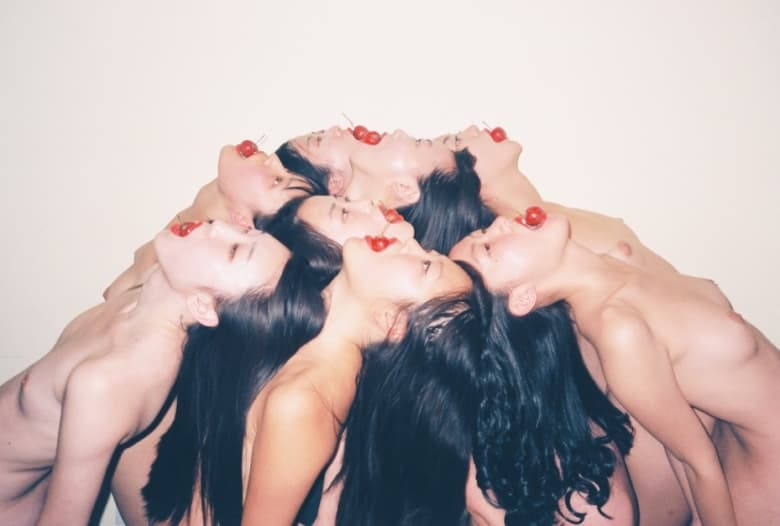
“Love, Ren Hang” opens at C/O Berlin on 7th December and runs until 29th February.
